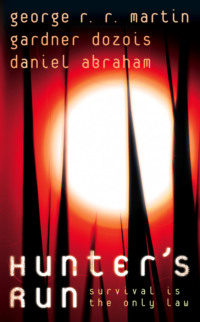
Полная версия
Dangerous Women
She looked over at Dodd, lying on his back with the arrow sticking straight up from his chest, his wet eyes fixed on her, his ribs going fast. She heard his shallow breaths slow, then stop.
Shy stood there a moment, then doubled over and blew puke onto the ground. Not much of it, since she’d eaten nothing that day, but her guts clenched up hard and made sure she retched up what there was. She shook so bad she thought she was going to fall, hands on her knees, sniffing bile from her nose and spluttering it out.
Damn, but her ribs hurt. Her arm. Her leg. Her face. So many scrapes, twists, and bruises, she could hardly tell one from another: her whole body was one overpowering fucking throb.
Her eyes crawled over to Dodd’s corpse, she felt another wave of sickness and forced them away, over to the horizon, fixing them on that shimmering line of nothing.
Not nothing.
There was dust rising there. She wiped her face on her ripped sleeve one more time, so filthy now that it was as like to make her dirtier as cleaner. She straightened, squinting into the distance, hardly able to believe it. Riders. No doubt. A good way off, but as many as a dozen.
“Oh, hell,” she whispered, and bit her lip. Things kept going this way she’d soon have chewed right through the bloody thing. “Oh, hell!” And Shy put her hands over her eyes and squeezed them shut and hid in self-inflicted darkness in the desperate hope she might have somehow been mistaken. Would hardly have been her first mistake, would it?
But when she took her hands away, the dust was still there. The world’s a mean bully, all right, and the lower down you are, the more it delights in kicking you. Shy put her hands on her hips, arched her back, and screamed up at the sky, the word drawn out as long as her sore lungs would allow.
“Fuck!”
The echoes clapped from the buildings and died a quick death. No answer came. Perhaps the faint droning of a fly already showing some interest in Dodd. Neary’s horse eyed her for a moment, then looked away, profoundly unimpressed. Now Shy had a sore throat to add to her woes. She was obliged to ask herself the usual questions.
What the fuck now?
She clenched her teeth as she hauled Dodd’s boots off and sat in the dust beside him to pull them on. Not the first time they’d stretched out together in the dirt, him and her. First time with him dead, though. His boots were way too loose on her, but a long stride better than no boots at all. She clomped back into the tavern in them.
Neary was making some pitiable groans as he struggled to get up. Shy kicked him in the face and down onto his back, plucked the rest of the arrows from his quiver, and took his heavy belt knife too. Back out into the sun and she picked up the bow, jammed Dodd’s hat onto her head, also somewhat on the roomy side but at least offering some shade as the sun got up. Then she dragged the three horses together and roped them into a string—quite a ticklish operation, since Jeg’s big stallion was a mean bastard and seemed determined to kick her brains out.
When she’d got it done, she frowned off towards those dust trails. They were headed for the town, all right, and fast. With a better look, she reckoned on about nine or ten, which was two or three better than twelve but still an almighty inconvenience.
Bank agents after the stolen money. Bounty hunters looking to collect her price. Other outlaws who’d got wind of a score. A score that was currently in the bottom of a well, as it happened. Could be anyone. Shy had an uncanny knack for making enemies. She found that she’d looked over at Dodd, facedown in the dust with his bare feet limp behind him. The only thing she had worse luck with was friends.
How had it come to this?
She shook her head, spat through the little gap between her front teeth, and hauled herself up into the saddle of Dodd’s horse. She faced it away from those impending dust clouds, towards which quarter of the compass she knew not.
Shy gave the horse her heels.
Megan Abbott
Megan Abbott was born in the Detroit area, graduated from the University of Michigan with a B.A. in English literature, received her Ph.D. in English and American literature from New York University, and has taught literature, writing, and film at New York University and the State University of New York at Oswego. She published her first novel, Die a Little, in 2005, and has since come to be regarded as one of the foremost practitioners of modern noir mystery writing, with the San Francisco Chronicle saying that she was poised to “claim the throne as the finest prose stylist in crime fiction since Raymond Chandler.” Her novels include Queenpin, which won the Edgar Award in 2008, The Song Is You, Bury Me Deep, and The End of Everything. Her most recent novel is Dare Me. Her other books include, as editor, the anthology A Hell of a Woman: An Anthology of Female Noir and a nonfiction study, The Street Was Mine: White Masculinity in Hardboiled Fiction and Film Noir. She lives in Forest Hills, New York, and maintains a website at meganabbott.com.
In the subtle yet harrowing story that follows, she shows us that there are some things that you just can’t get over, no matter how hard you try—and some insights into the hearts of even those we love the most that you can’t unsee once you see them.
MY HEART IS EITHER BROKEN
He waited in the car. He had parked under one of the big banks of lights. No one else wanted to park there. He could guess why. Three vehicles over, he saw a woman’s back pressed against a window, her hair shaking. Once, she turned her head and he almost saw her face, the blue of her teeth as she smiled.
Fifteen minutes went by before Lorie came stumbling across the parking lot, heels clacking.
He had been working late and didn’t even know she wasn’t home until he got there. When she finally picked up her cell, she told him where she was, a bar he’d never heard of, a part of town he didn’t know.
“I just wanted some noise and people,” she had explained. “I didn’t mean anything.”
He asked if she wanted him to come get her.
“Okay,” she said.
On the ride home, she was doing the laughing-crying thing she’d been doing lately. He wanted to help her but didn’t know how. It reminded him of the kinds of girls he used to date in high school. The ones who wrote in ink all over their hands and cut themselves in the bathroom stalls at school.
“I hadn’t been dancing in so long, and if I shut my eyes no one could see,” she was saying, looking out the window, her head tilted against the window. “No one there knew me until someone did. A woman I didn’t know. She kept shouting at me. Then she followed me into the bathroom stall and said she was glad my little girl couldn’t see me now.”
He knew what people would say. That she was out dancing at a grimy pickup bar. They wouldn’t say she cried all the way home, that she didn’t know what to do with herself, that no one knows how they’ll act when something like this happens to them. Which it probably won’t.
But he also wanted to hide, wanted to find a bathroom stall himself, in another city, another state, and never see anyone he knew again, especially his mother or his sister, who spent all day on the Internet trying to spread the word about Shelby, collecting tips for the police.
Shelby’s hands—well, people always talk about baby’s hands, don’t they?—but they were like tight little flowers and he loved to put his palm over them. He never knew he’d feel like that. Never knew he’d be the kind of guy—that there even were kinds of guys—who would catch the milky scent of his daughter’s baby blanket and feel warm inside. Even, sometimes, press his face against it.
It took him a long time to tug off the dark red cowboy boots she was wearing, ones he did not recognize.
When he pulled off her jeans, he didn’t recognize her underwear either. The front was a black butterfly, its wings fluttering against her thighs with each tug.
He looked at her and a memory came to him of when they first dated, Lorie taking his hand and running it along her belly, her thighs. Telling him she once thought she’d be a dancer, that maybe she could be. And that if she ever had a baby she’d have a C-section, because everyone knew what happened to women’s stomachs after, not to mention what it does down there, she’d said, laughing, and put his hand there next.
He’d forgotten all this, and other things too, but now the things kept coming back and making him crazy.
He poured a tall glass of water for her and made her drink it. Then he refilled it and set it beside her.
She didn’t sleep like a drunk person but like a child, her lids twitching dreamily and a faint smile tugging at her mouth.
The moonlight coming in, it felt like he watched her all night, but at some point he must have fallen asleep.
When he woke, she had her head on his belly, was rubbing him drowsily.
“I was dreaming I was pregnant again,” she murmured. “It was like Shelby all over again. Maybe we could adopt. There are so many babies out there that need love.”
They had met six years ago. He was working for his mother, who owned a small apartment building on the north side of town.
Lorie lived on the first floor, where the window was high and you could see people walking on the sidewalk. His mother called it a “sunken garden apartment.”
She lived with another girl and sometimes they came in very late, laughing and pressing up against each other in the way young girls do, whispering things, their legs bare and shiny in short skirts. He wondered what they said.
He was still in school then and would work evenings and weekends, changing washers on leaky faucets, taking out the trash.
Once, he was in front of the building, hosing down the garbage cans with bleach, and she rushed past him, her tiny coat bunched around her face. She was talking on the phone and she moved so quickly he almost didn’t see her, almost splashed her with the hose. For a second he saw her eyes, smeary and wet.
“I wasn’t lying,” she was saying into the phone as she pushed her key into the front door, as she heaved her shoulders against it. “I’m not the liar here.”
One evening not long after, he came home and there was a note under the door. It read:
My heart is either broken or I haven’t paid the bill.
Thx, Lorie, #1-A
He’d read it four times before he figured it out.
She smiled when she opened the door, the security chain across her forehead.
He held up his pipe wrench.
“You’re just in time,” she said, pointing to the radiator.
No one ever thinks anything will ever happen to their baby girl. That’s what Lorie kept saying. She’d been saying that to reporters, the police, for every day of the three weeks since it happened.
He watched her with the detectives. It was just like on TV except nothing like on TV. He wondered why nothing was ever like you thought it would be and then he realized it was because you never thought this would be you.
She couldn’t sit still, her fingers twirling through the edges of her hair. Sometimes, at a traffic signal, she would pull nail scissors from her purse and trim the split ends. When the car began moving, she would wave her hand out the window, scattering the clippings into the wind.
It was the kind of careless, odd thing that made her so different from any girl he ever knew. Especially that she would do it front of him.
He was surprised how much he had liked it.
But now all of it seemed different and he could see the detectives watching her, looking at her like she was a girl in a short skirt, twirling on a bar stool and tossing her hair at men.
“We’re gonna need you to start from the beginning again,” the male one said, and that part was like on TV. “Everything you remember.”
“She’s gone over it so many times,” he said, putting his hand over hers and looking at the detective wearily.
“I meant you, Mr. Ferguson,” the detective said, looking at him. “Just you.”
They took Lorie to the outer office and he could see her through the window, pouring long gulps of creamer into her coffee, licking her lips.
He knew how that looked too. The newspapers had just run a picture of her at a smoothie place. The caption was “What about Shelby?” They must have taken it through the front window. She was ordering something at the counter, and she was smiling. They always got her when she was smiling. They didn’t understand that she smiled when she was sad. Sometimes she cried when she was happy, like at their wedding, when she cried all day, her face pink and gleaming, shuddering against his chest.
I never thought you would, she had said. I never thought I would. That any of this could happen.
He didn’t know what she meant, but he loved feeling her huddled against him, her hips grinding against him like they did when she couldn’t hold herself together and seemed to be holding on to him to keep from flying off the earth itself.
“So, Mr. Ferguson,” the detective said, “you came home from work and there was no one home?”
“Right,” he said. “Call me Tom.”
“Tom,” the detective started again, but the name seemed to fumble in his mouth like he’d rather not say it. Last week he’d called him Tom. “Was it unusual to find them gone at that time of day?”
“No,” he said. “She liked to keep busy.”
It was true, because Lorie never stayed put and sometimes would strap Shelby into the car seat and drive for hours, putting 100 or 200 miles on the car.
She would take her to Mineral Pointe and take photos of them in front of the water. He would get them on his phone at work and they always made him grin. He liked how she was never one of these women who stayed at home and watched court shows or the shopping channels.
She worked twenty-five hours a week at the Y while his mother stayed with Shelby. Every morning, she ran five miles, putting Shelby in the jogging stroller. She made dinner every night and sometimes even mowed the lawn when he was too busy. She never ever stopped moving.
This is what the newspapers and the TV people loved. They loved to take pictures of her jogging in her short shorts and talking on the phone in her car and looking at fashion magazines in line at the grocery store.
“What about Shelby?” the captions always read.
They never understood her at all. He was the only one.
“So,” the detective asked him, rousing from his thoughts, “what did you do when you found the house empty?”
“I called her cell.” He had. She hadn’t answered, but that wasn’t unusual either. He didn’t bother to tell them that. That he’d called four or five times and the phone went straight to voice mail and it wasn’t until the last time she picked up.
Her voice had been strange, small, like she might be in the doctor’s office, or the ladies’ room. Like she was trying to make herself quiet and small.
“Lorie? Are you okay? Where are you guys?”
There had been a long pause and the thought came that she had crashed the car. For a crazy second he thought she might be in the hospital, both of them broken and battered. Lorie was a careless driver, always sending him texts from the car. Bad pictures came into his head. He’d dated a girl once who had a baby shoe that hung on her rearview mirror. She said it was to remind her to drive carefully, all the time. No one ever told you that after you were sixteen.
“Lorie, just tell me.” He had tried to make his voice firm but kind.
“Something happened.”
“Lorie,” he tried again, like after a fight with her brother or her boss, “just take a breath and tell me.”
“Where did she go?” her voice came. “And how is she going to find me? She’s a little girl. She doesn’t know anything. They should put dog tags on them like they did when we were kids, remember that?”
He didn’t remember that at all, and there was a whirr in his head that was making it hard for him to hear.
“Lorie, you need to tell me what’s going on.”
So she did.
She said she’d been driving around all morning, looking at lawn mowers she’d found for sale on Craigslist. She was tired, decided to stop for coffee at the expensive place.
She saw the woman there all the time. They talked online about how expensive the coffee was but how they couldn’t help it. And what was an Americano, anyway? And, yeah, they talked about their kids. She was pretty sure the woman said she had kids. Two, she thought. And it was only going to be two minutes, five at the most.
“What was going to be five minutes?” he had asked her.
“I don’t know how it happened,” she said, “but I spilled my coffee, and it was everywhere. All over my new white coat. The one you got me for Christmas.”
He had remembered her opening the box, tissue paper flying. She had said he was the only person who’d ever bought her clothes that came in boxes, with tissue paper in gold seals.
She’d spun around in the coat and said, Oh, how it sparkles.
Crawling onto his lap, she’d smiled and said only a man would give the mother of a toddler a white coat.
“The coat was soaking,” she said now. “I asked the woman if she could watch Shelby while I was in the restroom. It took a little while because I had to get the key. One of those heavy keys they give you.”
When she came out of the restroom, the woman was gone, and so was Shelby.
He didn’t remember ever feeling the story didn’t make sense. It was what happened. It was what happened to them, and it was part of the whole impossible run of events that led to this. That led to Shelby being gone and no one knowing where.
But it seemed clear almost from the very start that the police didn’t feel they were getting all the information, or that the information made sense.
“They don’t like me,” Lorie said. And he told her that wasn’t true and had nothing to do with anything anyway, but maybe it did.
He wished they could have seen Lorie when she had pushed through the front door that day, her purse unzipped, her white coat still damp from the spilled coffee, her mouth open so wide, all he could see was the red inside her, raw and torn.
Hours later, their family around them, her body shuddering against him as her brother talked endlessly about Amber Alerts and Megan’s Law and his criminal justice class and his cop buddies from the gym, he felt her pressing into him and saw the feathery curl tucked in her sweater collar, a strand of Shelby’s angel-white hair.
By the end of the second week, the police hadn’t found anything, or if they did they weren’t telling. Something seemed to have shifted, or gotten worse.
“Anybody would do it,” Lorie said. “People do it all the time.”
He watched the detective watch her. This was the woman detective, the one with the severe ponytail who was always squinting at Lorie.
“Do what?” the woman detective asked.
“Ask someone to watch their kid, for just a minute,” Lorie said, her back stiffening. “Not a guy. I wouldn’t have left her with a man. I wouldn’t have left her with some homeless woman waving a hairbrush at me. This was a woman I saw in there every day.”
“Named?” They had asked her for the woman’s name many times. They knew she didn’t know it.
Lorie looked at the detective, and he could see those faint blue veins showing under her eyes. He wanted to put his arm around her, to make her feel him there, to calm her. But before he could do anything, she started talking again.
“Mrs. Caterpillar,” she said, throwing her hands in the air. “Mrs. Linguini. Madame Lafarge.”
The detective stared at her, not saying anything.
“Let’s try looking her up on the Internet,” Lorie said, her chin jutting and a kind of hard glint to her eyes. All the meds and the odd hours they were keeping, all the sleeping pills and sedatives and Lorie walking through the house all night, talking about nothing but afraid to lie still.
“Lorie,” he said. “Don’t—”
“Everything always happens to me,” she said, her voice suddenly soft and strangely liquid, her body sinking. “It’s so unfair.”
He could see it happening, her limbs going limp, and he made a grab for her.
She nearly slipped from him, her eyes rolling back in her head.
“She’s fainting,” he said, grabbing her, her arms cold like frozen pipes. “Get someone.”
The detective was watching.
“I can’t talk about it because I’m still coping with it,” Lorie told the reporters who were waiting outside the police station. “It’s too hard to talk about.”
He held her arm tightly and tried to move her through the crowd, bunched so tightly, like the knot in his throat.
“Is it true you’re hiring at attorney?” one of the reporters asked.
Lorie looked at them. He could see her mouth open and there was no time to stop her.
“I didn’t do anything wrong,” she said, a hapless grin on her face. As if she had knocked someone’s grocery cart with her own.
He looked at her. He knew what she meant—she meant leaving Shelby for that moment, that scattered moment. But he also knew how it sounded, and how she looked, that panicky smile she couldn’t stop.
That was the only time he let her speak to reporters.
Later, at home, she saw herself on the nightly news
Walking slowly to the TV, she kneeled in front of it, her jeans skidding on the carpet, and did the oddest thing.
She put her arms around it, like it was a teddy bear, a child.
“Where is she?” she whispered. “Where is she?”
And he wished the reporters could see this, the mystifying way grief was settling into her like a fever.
But he was also glad they couldn’t.
It was the middle of the night, close to dawn, and she wasn’t next to him.
He looked all over the house, his chest pounding. He thought he must be dreaming, calling out her name, both their names.
He found her in the backyard, a lithe shadow in the middle of the yard.
She was sitting on the grass, her phone lighting her face.
“I feel closer to her out here,” she said. “I found this.”
He could barely see, but moving closer saw the smallest of earrings, an enamel butterfly, caught between her fingers.
They had had a big fight when she came home with Shelby, her ears pierced, thick gold posts plugged in such tiny lobes. Her ears red, her face red, her eyes soft with tears.
“Where did she go, babe?” Lorie said to him now. “Where did she go?”
He was soaked with sweat and was pulling his T-shirt from his chest.
“Look, Mr. Ferguson,” the detective said, “you’ve cooperated with us fully. I get that. But understand our position. No one can confirm her story. The employee who saw your wife spill her coffee remembers seeing her leave with Shelby. She doesn’t remember another woman at all.”
“How many people were in there? Did you talk to all of them?”
“There’s something else too, Mr. Ferguson.”
“What?”
“One of the other employees said Lorie was really mad about the coffee spill. She told Shelby it was her fault. That everything was her fault. And that Lorie then grabbed your daughter by the arm and shook her.”
“That’s not true,” he said. He’d never seen Lorie touch Shelby roughly. Sometimes it seemed she barely knew she was there.
“Mr. Ferguson, I need to ask you: Has your wife had a history of emotional problems?”
“What kind of question is that?”
“It’s a standard question in cases like this,” the detective said. “And we’ve had some reports.”
“Are you talking about the local news?”
“No, Mr. Ferguson. We don’t collect evidence from TV.”
“Collecting evidence? What kind of evidence would you need to collect about Lorie? It’s Shelby who’s missing. Aren’t you—”









